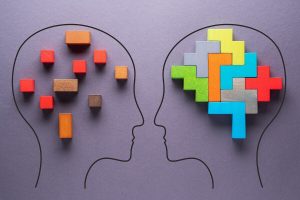DISC. Personality tests for development (continuation, see previous article)
What do the DISC personality instruments give us?
With the DISC model of personality we are dealing with a model of personality traits. Nobody fits exclusively into one dimension or another, but rather sits on the continuum between them.
But, now that we know something about its history (and structure), we are going to analyze its contributions from the following point of view:
It is a classic model, with different questionnaires and reports that have been continuously improved for a long time.
It is obvious, then, that DISC, with time and dedication, has reached a high degree of perfection in its measurement instruments or tools (great reliability and validity of the questionnaires). Also able to provide comprehensive information in their reports for various applications (more in some versions than others).
Applications for personal growth and leadership development, recruitment (which profile is most suitable for each position), interpersonal understanding to improve communication, etc. are highly evolved.
Some cases, like Everything DISC, offer an exhaustive information directly to the end user. It does not require a certified expert.
All great advantages a priori
Possible DISC improvement points
Where can DISC instruments falter somewhat? From our point of view, in the consequences that may result from the exaggeration of their own strengths.
With so much information, the user who feels the need for development is likely to perceive a huge mountain in front of him and ask himself:
Where do I begin? What is really important? Figure 1.
And do not see clearly hir/her path to improving results.
Some version (Everything DISC) does not require an expert to transmit the information to the end user. In this case, this problem can be aggravated: the developing user can feel very alone in front of the mountain.
In addition, we are talking about tools to ‘accompany development’. So this version, with a direct connection between the measuring instrument and the end user, will be of little interest to the coaches, psychologists and consultants, right?
And what else can happen with the versions with extensive information that require an expert to debrief it?
Well, that user and the expert have the same written information, so the expertise of the latter loses value. The user may ask himself: Why do I need coaching, a coach psychologist, coach consultant, if I have the information directly?

Coach and client wonder where to start?
Good coaching tools like DISC, that provide a lot of information, can make it difficult to focus the development.
Differences with the neuro tool
With NeuroQuotient® we have tried to avoid these problems:
First: facilitating the approach to what is a priority for the development of each one.
Second: valuing the expert. The client (developing user) feels: ‘my coach, my psychologist, my consultant, my therapist really understands me’. All this with a certification that don’t requir a big effort.
Finally, the DISC model has been far behind in the time of the instruments, of the DISC tests to measure personality. What is behind the behavior and what drives it, is gradually lost sight of and we are only left with the personality. William Marston is longly dead. We are convinced that with his ability to observe, study, analyze and conceptualize and with the advancement of neuroscience, his model would have evolved and now we would have a different DISC.
In the next post of the series, we will continue with the models and tools for people development,, specifically with MBTI.




